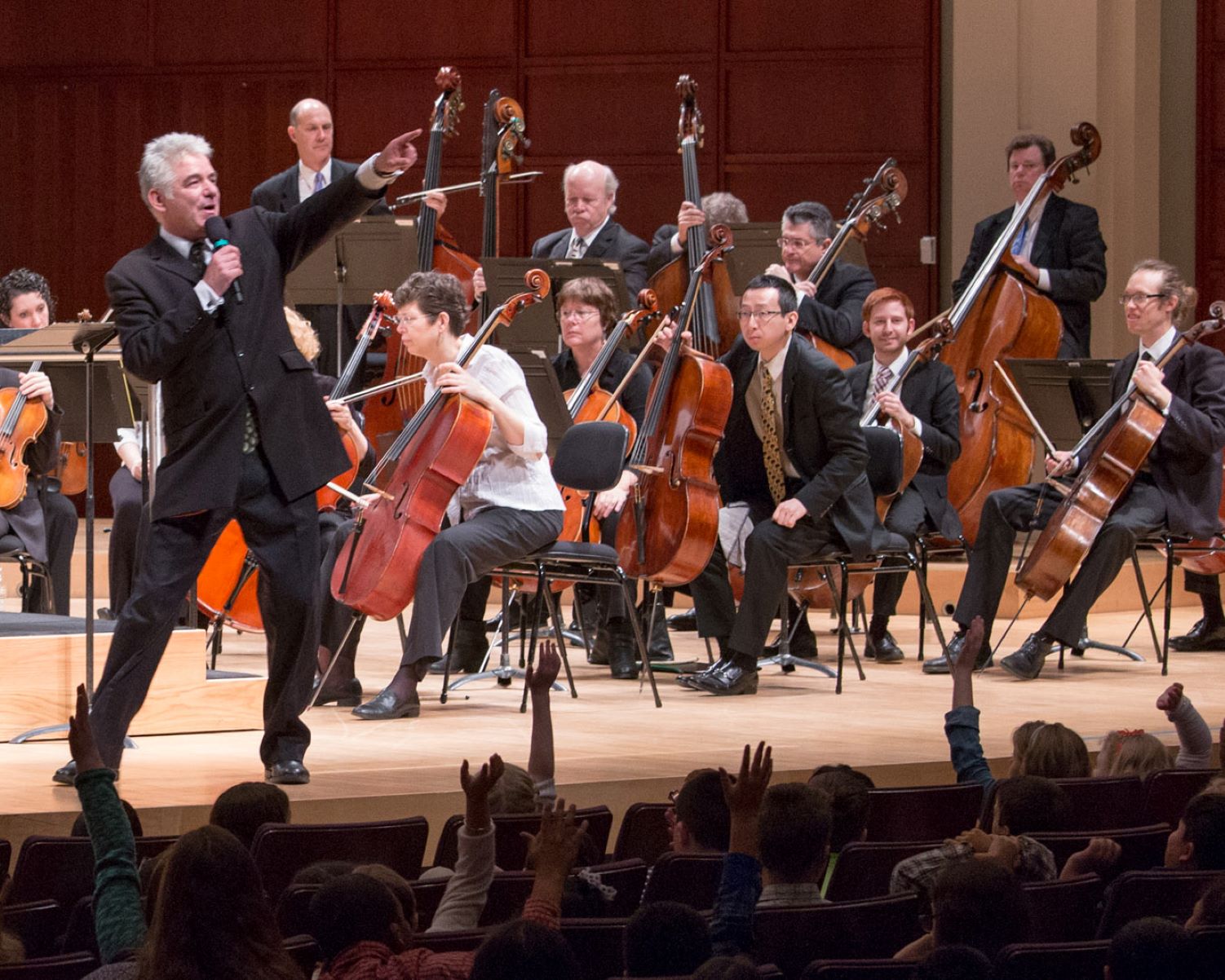Home>Genres>Symphony>How Much Money Do Musicians In The North Carolina Symphony Make?


Symphony
How Much Money Do Musicians In The North Carolina Symphony Make?
Published: January 17, 2024
Find out the earnings of musicians in the North Carolina Symphony. Discover how much money the Symphony players make in this insightful article.
(Many of the links in this article redirect to a specific reviewed product. Your purchase of these products through affiliate links helps to generate commission for AudioLover.com, at no extra cost. Learn more)
Table of Contents
- Introduction
- Background of the North Carolina Symphony
- Factors that Influence Musicians’ Salaries
- Salary Range for Musicians in the North Carolina Symphony
- Comparison of Musicians’ Salaries in the North Carolina Symphony with Other Orchestras
- Additional Perks and Benefits for Musicians in the North Carolina Symphony
- Conclusion
- References
Introduction
Welcome to our comprehensive guide on the salaries of musicians in the North Carolina Symphony! If you’ve ever been curious about how much these talented individuals earn for their craft, you’ve come to the right place. In this article, we will explore the factors that influence musicians’ salaries, the salary range for musicians in the North Carolina Symphony, and how they compare with musicians in other orchestras.
The North Carolina Symphony is a renowned orchestra with a rich history dating back to its founding in 1932. Based in Raleigh, North Carolina, the orchestra has evolved into a cultural institution that continues to captivate audiences with its exceptional performances. The North Carolina Symphony is composed of highly skilled musicians who dedicate their lives to mastering their craft and providing enchanting musical experiences for audiences across the state.
As with any profession, musicians’ salaries can vary based on several factors. These include the musician’s level of experience, the position they hold within the orchestra, the number of performances and rehearsals they are scheduled for, and the overall financial stability of the symphony. Additionally, the prestige and reputation of the orchestra can influence the compensation provided to its musicians.
While it is important to note that salaries can fluctuate over time due to factors such as budget constraints and economic conditions, understanding the general salary range for musicians in the North Carolina Symphony can provide valuable insights into their earning potential.
Background of the North Carolina Symphony
The North Carolina Symphony has a rich and storied history that spans nearly nine decades. It was founded in 1932 and is the premier professional orchestra in the state of North Carolina. The symphony is based in Raleigh, the capital city, but it also performs in other venues across the state.
Over the years, the North Carolina Symphony has grown in stature and reputation, delighting audiences with its exceptional performances and commitment to musical excellence. The orchestra is known for its versatility, performing a wide range of musical genres, including classical, pops, and educational concerts for students.
The symphony is comprised of talented musicians who have undergone rigorous training and possess exceptional skill in their respective instruments. Each member of the orchestra brings their passion for music and their dedication to deliver captivating performances that leave audiences awestruck.
The North Carolina Symphony has had the privilege of working with world-renowned conductors and guest artists, further elevating its profile in the music industry. Through collaborations with esteemed musicians, the symphony continues to push boundaries, explore new musical territories, and enrich the cultural fabric of the state.
In addition to its regular season performances, the North Carolina Symphony is actively involved in community outreach and educational programs. The orchestra strives to make music accessible to all, reaching out to schools, community centers, and underserved areas to engage and inspire audiences of all ages.
The commitment to musical excellence and the dedication to the community have earned the North Carolina Symphony accolades and recognition both locally and nationally. The orchestra has received numerous awards for its performances and educational initiatives, solidifying its position as a vital cultural institution in the state.
With its rich history, commitment to excellence, and its focus on community engagement, the North Carolina Symphony continues to captivate audiences and make a lasting impact on the cultural landscape of the state.
Factors that Influence Musicians’ Salaries
When it comes to determining the salaries of musicians in the North Carolina Symphony, several key factors come into play. These factors can vary and may impact the compensation musicians receive for their talents and dedication.
One significant factor that influences musicians’ salaries is their level of experience and skill. Musicians who have spent years honing their craft and have achieved a high level of proficiency in their instrument are often compensated at a higher rate. This recognizes their dedication, expertise, and the years of practice and study that have gone into their musical development.
The position that a musician holds within the orchestra hierarchy also plays a role in determining their salary. Principal musicians, who hold leadership roles within their instrumental sections, may receive higher compensation compared to those in supporting roles. This is due to the added responsibility and leadership they provide to the ensemble.
The number of performances and rehearsals a musician is scheduled for also impacts their salary. Musicians in the North Carolina Symphony often have a busy schedule, with regular performances both in Raleigh and other venues across the state. The more performances and rehearsals they participate in, the higher their potential earnings.
The financial stability of the symphony itself can also influence musicians’ salaries. Orchestras rely on funding from various sources, including ticket sales, sponsorships, and government grants. If the symphony is facing financial challenges, it may impact the overall compensation package for its musicians.
The prestige and reputation of the symphony can also have a bearing on musicians’ salaries. Orchestras with a strong reputation and international recognition often attract larger audiences and support, which can translate into higher salaries for their musicians. The North Carolina Symphony, with its esteemed history and commitment to excellence, falls into this category, providing its musicians with competitive compensation.
Ultimately, the determination of musicians’ salaries is a complex process influenced by multiple factors. It requires careful consideration of the musicians’ skills, experience, positions, and the overall financial health and reputation of the symphony. By taking these factors into account, the North Carolina Symphony ensures that its musicians are fairly compensated for their exceptional talents and contributions to the world of classical music.
Salary Range for Musicians in the North Carolina Symphony
The salary range for musicians in the North Carolina Symphony can vary based on several factors, including experience, position, and the number of performances and rehearsals they participate in. It is important to note that these figures are approximate and can fluctuate over time due to factors such as budget constraints and economic conditions.
On average, entry-level musicians in the North Carolina Symphony can expect to earn a salary in the range of $35,000 to $45,000 per year. This salary reflects the base compensation for musicians who are just starting their careers and may be in supporting roles within the orchestra.
As musicians gain more experience and move into higher positions, their salaries can increase significantly. Mid-level musicians, who have established themselves and hold leadership positions within their sections, can earn an average salary ranging from $50,000 to $70,000 per year. These musicians play a vital role in shaping the sound and artistic direction of the orchestra.
The top-tier musicians in the North Carolina Symphony, such as the principal musicians, concertmasters, and other key positions, can earn salaries upwards of $100,000 per year. These musicians are not only highly skilled instrumentalists but also assume leadership roles within the orchestra. Their salaries reflect their expertise, influence, and the additional responsibilities they carry.
It is important to note that these figures do not include additional income musicians may receive from other sources, such as teaching or performing in other ensembles. Many musicians supplement their income through private lessons, workshops, and freelance performances.
The North Carolina Symphony also provides its musicians with benefits such as health insurance, retirement plans, and paid time off. These additional perks contribute to the overall compensation package and further support the musicians’ well-being and financial stability.
Overall, the salary range for musicians in the North Carolina Symphony reflects the dedication, skill, and contribution they bring to the orchestra. While the lower-end salaries may not be as high as those in some larger orchestras, the North Carolina Symphony offers a supportive and enriching environment for musicians to grow and thrive in their craft.
Comparison of Musicians’ Salaries in the North Carolina Symphony with Other Orchestras
When it comes to comparing musicians’ salaries, it’s important to consider that compensation can vary significantly between different orchestras. Factors such as the size and financial resources of the orchestra, the geographic location, and the overall demand for orchestral music in the region all play a role in determining musicians’ salaries.
While the North Carolina Symphony may not offer salaries as high as those in some larger metropolitan orchestras, it is important to consider the cost of living in the area. Raleigh, compared to cities like New York or Los Angeles, has a lower cost of living, which can affect the salary scale. Despite this, the North Carolina Symphony remains competitive among orchestras of similar size and reputation.
When compared to other similarly sized regional orchestras, the North Carolina Symphony offers competitive salaries to its musicians. In fact, it ranks favorably when compared to many other orchestras around the country. The salaries provided by the North Carolina Symphony allow musicians to maintain a comfortable standard of living while pursuing their passion for music.
It is also worth noting that the North Carolina Symphony provides a supportive and collaborative working environment, which can be just as valuable as high salaries. For many musicians, the opportunity to perform with a dedicated and talented group of colleagues, and to work under renowned conductors and guest artists, is an invaluable experience that goes beyond monetary compensation.
Additionally, the North Carolina Symphony offers benefits such as health insurance, retirement plans, and paid time off, which contribute to the overall compensation package. These benefits, combined with the supportive and stimulating work environment, make the North Carolina Symphony an attractive place for musicians to build their careers.
Ultimately, comparing musicians’ salaries across different orchestras is complex, as it involves considering various factors. While the North Carolina Symphony may not offer the highest salaries in the industry, it provides a rewarding and fulfilling experience for musicians who value artistic excellence, a collaborative atmosphere, and a strong sense of community.
It is important to remember that musicians in the North Carolina Symphony are driven by their passion for music and their commitment to sharing their talent with audiences. While salary is an important consideration, the opportunity to be part of a vibrant and respected orchestra like the North Carolina Symphony is a reward in itself.
Additional Perks and Benefits for Musicians in the North Carolina Symphony
Beyond competitive salaries, musicians in the North Carolina Symphony enjoy a range of additional perks and benefits. These offerings recognize their contributions to the orchestra and contribute to their overall job satisfaction and well-being.
One significant benefit provided to musicians is access to comprehensive health insurance. The North Carolina Symphony offers medical, dental, and vision insurance plans, ensuring that musicians have access to the necessary healthcare they need for themselves and their families. This coverage provides peace of mind and support for musicians’ overall well-being.
Retirement plans are also an essential aspect of the benefits package for musicians. The North Carolina Symphony provides retirement plans that help musicians prepare for their future and ensure financial security in their later years. This commitment to long-term financial stability demonstrates the orchestra’s dedication to its musicians’ well-being beyond their years of service.
Additionally, the North Carolina Symphony offers paid time off, allowing musicians to enjoy well-deserved breaks and spend quality time with their families. This time off is crucial for maintaining a healthy work-life balance and contributes to overall job satisfaction, creativity, and artistic growth.
As members of a professional orchestra, musicians in the North Carolina Symphony also have access to a vast network of colleagues and industry professionals. This networking opportunity opens doors to collaborations, guest artist performances, and other professional development opportunities. The connections made within the orchestra can lead to further opportunities and career advancement in the music world.
The North Carolina Symphony also supports musicians’ growth and development through educational workshops and masterclasses. These opportunities allow musicians to refine their skills, learn from acclaimed musicians and educators, and stay at the forefront of their craft. The orchestra invests in the continued growth and development of its musicians, ensuring that they can maintain a high level of skill and artistry.
Furthermore, the North Carolina Symphony fosters a supportive and collaborative working environment. Musicians have the opportunity to work with world-class conductors and guest artists, receiving valuable guidance and insight that contributes to their artistic growth. They are part of a team that is highly dedicated to delivering exceptional performances, making the experience fulfilling and enriching.
Overall, the additional perks and benefits provided to musicians in the North Carolina Symphony go beyond monetary compensation, supporting their physical, financial, and artistic well-being. These offerings contribute to a positive work experience, job satisfaction, and a strong sense of community among the musicians. The North Carolina Symphony recognizes and values the incredible contributions of its musicians, ensuring that they are supported both on and off the stage.
Conclusion
The North Carolina Symphony provides an exceptional platform for musicians to showcase their talents, immerse themselves in the world of classical music, and make a meaningful impact on their audiences. While salaries for musicians in the North Carolina Symphony may vary based on factors such as experience, position, and the number of performances, the orchestra offers competitive compensation packages that recognize the dedication and skill of its musicians.
Beyond salaries, the North Carolina Symphony provides a range of additional perks and benefits to support the well-being and growth of its musicians. From comprehensive health insurance and retirement plans to paid time off and access to educational opportunities, the orchestra demonstrates its commitment to the overall happiness and success of its musicians.
While salaries may not reach the same levels as those offered by larger metropolitan orchestras, the North Carolina Symphony compensates for this by offering a supportive and collaborative working environment. The opportunity to perform with talented colleagues, work with renowned conductors and guest artists, and contribute to the cultural fabric of the state is invaluable and contributes to musicians’ professional and personal growth.
Ultimately, the North Carolina Symphony is more than just a place of employment for its musicians. It is a community of dedicated individuals who share a common love for music and strive for artistic excellence. The orchestra enriches the lives of its musicians and audiences alike, creating a lasting impact on the cultural fabric of North Carolina.
So, whether you’re a musician seeking to join this esteemed orchestra or an audience member enjoying the captivating performances, rest assured that the North Carolina Symphony is a remarkable institution that values its musicians and offers a rewarding and fulfilling experience for all involved.
References
1. North Carolina Symphony – Official Website. Retrieved from https://www.ncsymphony.org/
2. “History of the North Carolina Symphony”. North Carolina Symphony. Retrieved from https://www.ncsymphony.org/about/history/
3. “Musicians’ Salaries in American Orchestras”. American Federation of Musicians. Retrieved from https://www.afm.org/what-we-stand-for/current-contracts/musicians-salaries-in-american-orchestras/
4. “Working in Orchestras: A Guide”. League of American Orchestras. Retrieved from https://americanorchestras.org/advocacy-government/resources-for-musicians/working-in-orchestras-a-guide.html
5. “Salary Negotiation for Musicians”. Musical America. Retrieved from https://www.musicalamerica.com/pages/?pagename=salary-negotiation
Disclaimer: The salary ranges and information provided in this article are based on general observations and research. Salaries can vary over time and may change based on various factors. For the most accurate and up-to-date information, it is recommended to refer to official sources and consult with relevant organizations or professionals.











